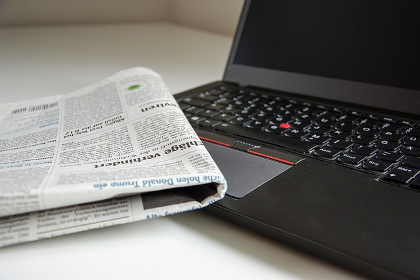
How the FDA Manipulates the Media
It was a faustian bargain—and it certainly made editors at National Public Radio squirm.
The deal was this: NPR, along with a select group of media outlets, would get a briefing about an upcoming announcement by the U.S. Food and Drug Administration a day before anyone else. But in exchange for the scoop, NPR would have to abandon its reportorial independence. The FDA would dictate whom NPR's reporter could and couldn't interview.
October 1, 2016 | Source: Scientific American | by Charles Seife
The U.S. Food and Drug Administration has been arm-twisting journalists into relinquishing their reportorial independence, our investigation reveals. Other institutions are following suit
It was a faustian bargain—and it certainly made editors at National Public Radio squirm.
The deal was this: NPR, along with a select group of media outlets, would get a briefing about an upcoming announcement by the U.S. Food and Drug Administration a day before anyone else. But in exchange for the scoop, NPR would have to abandon its reportorial independence. The FDA would dictate whom NPR's reporter could and couldn't interview.
“My editors are uncomfortable with the condition that we cannot seek reaction,” NPR reporter Rob Stein wrote back to the government officials offering the deal. Stein asked for a little bit of leeway to do some independent reporting but was turned down flat. Take the deal or leave it.
NPR took the deal. “I'll be at the briefing,” Stein wrote.
Later that day in April 2014, Stein—along with reporters from more than a dozen other top-tier media organizations, including CBS, NBC, CNN, the Washington Post, the Wall Street Journal and the New York Times—showed up at a federal building to get his reward. Every single journalist present had agreed not to ask any questions of sources not approved by the government until given the go-ahead.
“I think embargoes that attempt to control sourcing are dangerous because they limit the role of the reporter whose job it is to do a full look at a subject,” says New York Times former public editor Margaret Sullivan. “It's really inappropriate for a source to be telling a journalist whom he or she can and can't talk to.” Ivan Oransky, distinguished writer in residence at New York University's Journalism Institute and founder of the Embargo Watch weblog, agrees: “I think it's deeply wrong.”
This kind of deal offered by the FDA—known as a close-hold embargo—is an increasingly important tool used by scientific and government agencies to control the behavior of the science press. Or so it seems. It is impossible to tell for sure because it is happening almost entirely behind the scenes. We only know about the FDA deal because of a wayward sentence inserted by an editor at the New York Times. But for that breach of secrecy, nobody outside the small clique of government officials and trusted reporters would have known that the journalists covering the agency had given up their right to do independent reporting.
